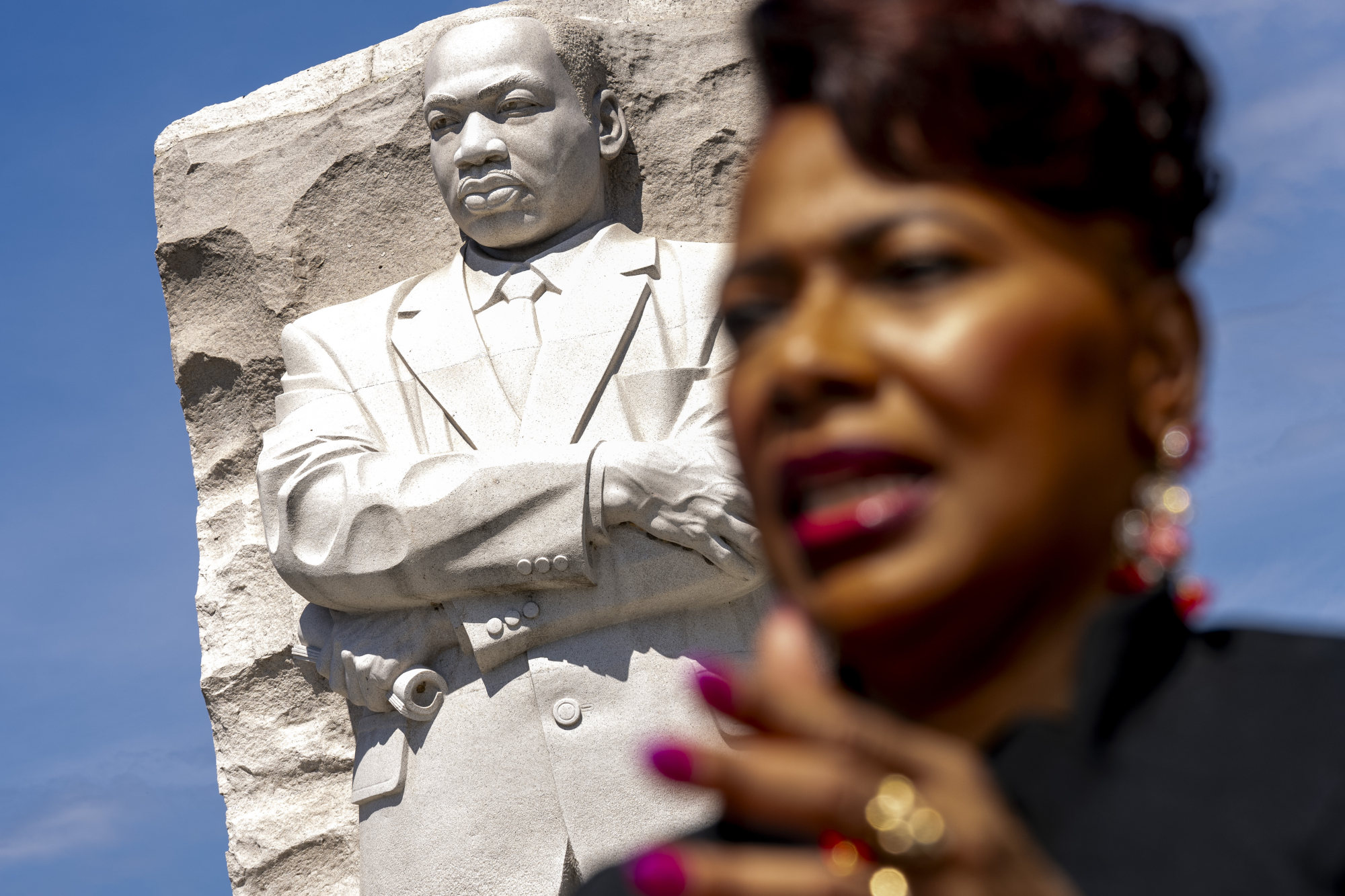
Thousands gather in Washington for 60th anniversary of Martin Luther King’s ‘dream’ speech
- The 1963 march brought 250,000 people to the US capital to push for an end to discrimination on the basis of race, colour, religion, sex or national origin
- The event opened doors to fight racial discrimination, but new laws that ‘claw away’ at rights and target the LGBTQ community are a threat, rights groups say
Thousands of Americans converged on Washington on Saturday to commemorate the 60th anniversary of the March on Washington, a pivotal event in the 1960s US civil rights movement at which Martin Luther King Jnr gave his galvanising “I have a dream” speech.
The 1963 march brought more than 250,000 people to the nation’s capital to push for an end to discrimination on the basis of race, colour, religion, sex or national origin. Many credit the show of strength with the passage of the Civil Rights Act of 1964.
Organised by the National Association for the Advancement of Coloured People and other civil rights groups, this year’s march took place at the Lincoln Memorial, the backdrop to King’s impassioned call for equality, as many speakers warned that much work was yet to be done.

Margaret Huang, the president and CEO of the Southern Poverty Law Centre non-profit civil rights advocacy group, told the crowd that the march 60 years ago opened doors and spurred new tools to fight racial discrimination.
But new laws throughout the country that “claw away at the right to vote” and target the LGBTQ community threaten to erase some of those gains, Huang said. “These campaigns against our ballots, our bodies, our schoolbooks, they are all connected. When our right to vote falls, all other civil and human rights can fall too, but we’re here today to say ‘not on our watch.’”
Speakers decried gun violence against black people as the crowd chanted “No Justice, No peace.”
Harry Belafonte, award-winning singer, civil rights activist, dies at 96
Ashley Sharpton, an activist with National Action Network and daughter of the Reverend Al Sharpton, said in a speech that Americans need to “turn demonstration into legislation” and cannot allow the sacrifices of ancestors in the fight for equality to have been in vain.
Kimberle Crenshaw, executive director of the African-American Policy Forum, said the anniversary occurs at a troubling moment.
“The very history that the march is commemorating is being not only challenged but distorted,” Crenshaw said, referring to bans in several states on books and classroom instruction based on so-called critical race theory, which views a legacy of racism as shaping American history.

She called that and other moves such as the removal of an African American Studies course from public schools in Florida and Arkansas a “concerted effort to silence conversation about that history.”
Opponents of CRT say it distorts history and is needlessly divisive and upsetting for pupils.
Speakers at the march include civil rights leaders such as the Reverend Al Sharpton, King’s son Martin Luther King III, his granddaughter Yolanda Renee King and House Minority Leader Hakeem Jeffries.

In terms of the goals envisioned in King’s “dream,” the country has come a long way since 1963, said Jonathan Greenblatt, national director of the Anti-Defamation League, which played a role in the campaign for the Civil Rights Act’s enactment.
But, he said, recent Supreme Court rulings setting back affirmative action and access to abortion were a cause for concern.
“We’ve seen an expansion of antisemitism, we’ve seen an intensification of racism,” said Greenblatt.

